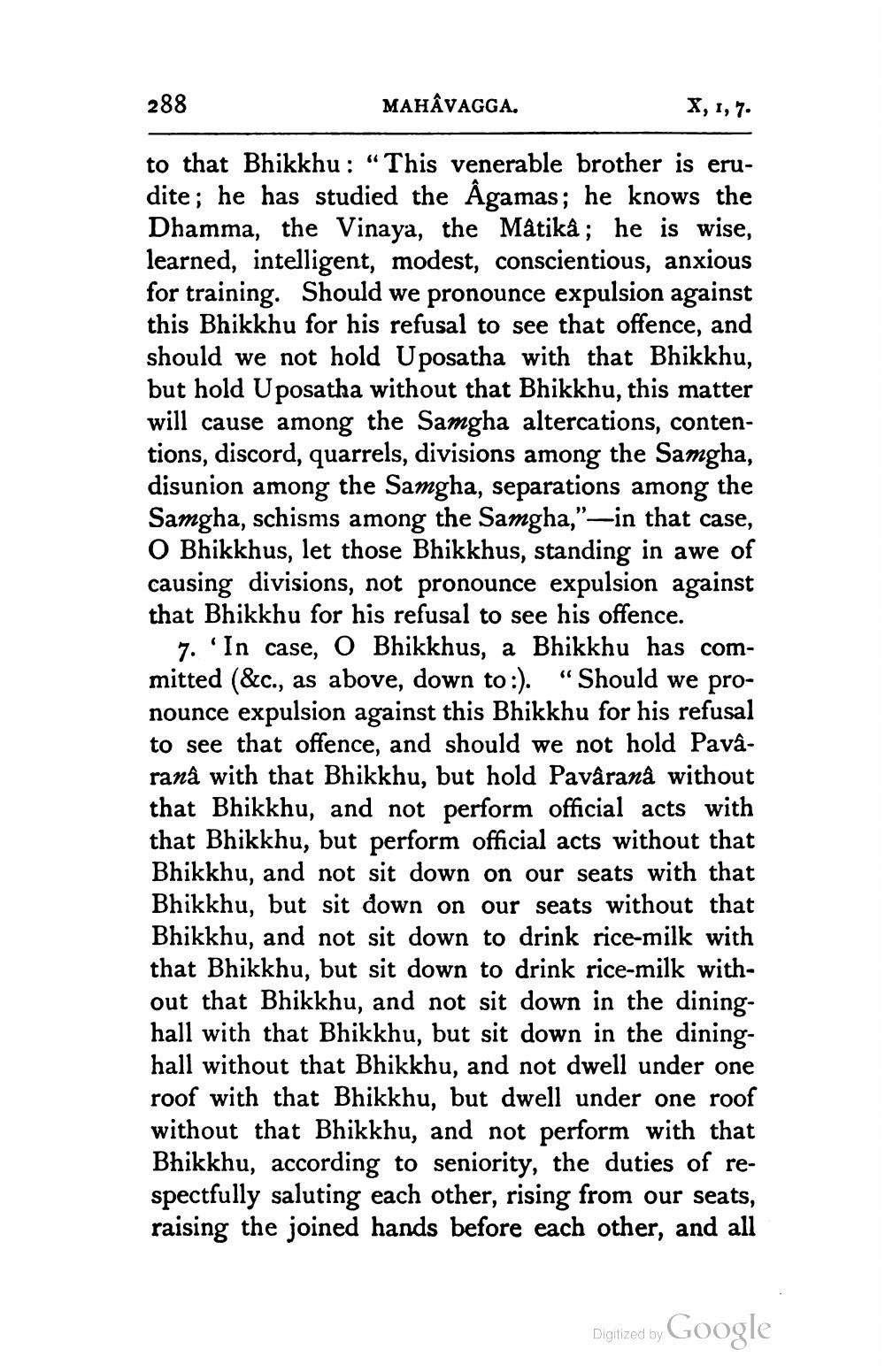________________
288
MAHÂVAGGA.
X, 1,7
to that Bhikkhu: “This venerable brother is erudite; he has studied the Âgamas; he knows the Dhamma, the Vinaya, the Mâtika; he is wise, learned, intelligent, modest, conscientious, anxious for training. Should we pronounce expulsion against this Bhikkhu for his refusal to see that offence, and should we not hold Uposatha with that Bhikkhu, but hold U posatha without that Bhikkhu, this matter will cause among the Samgha altercations, contentions, discord, quarrels, divisions among the Samgha, disunion among the Samgha, separations among the Samgha, schisms among the Samgha,"—in that case, O Bhikkhus, let those Bhikkhus, standing in awe of causing divisions, not pronounce expulsion against that Bhikkhu for his refusal to see his offence.
7. 'In case, O Bhikkhus, a Bhikkhu has committed (&c., as above, down to:). “Should we pronounce expulsion against this Bhikkhu for his refusal to see that offence, and should we not hold Pavâranâ with that Bhikkhu, but hold Pavåranà without that Bhikkhu, and not perform official acts with that Bhikkhu, but perform official acts without that Bhikkhu, and not sit down on our seats with that Bhikkhu, but sit down on our seats without that Bhikkhu, and not sit down to drink rice-milk with that Bhikkhu, but sit down to drink rice-milk without that Bhikkhu, and not sit down in the dininghall with that Bhikkhu, but sit down in the dininghall without that Bhikkhu, and not dwell under one roof with that Bhikkhu, but dwell under one roof without that Bhikkhu, and not perform with that Bhikkhu, according to seniority, the duties of respectfully saluting each other, rising from our seats, raising the joined hands before each other, and all
Digitized by
Digized by Google




